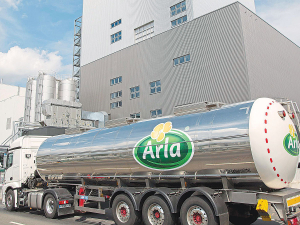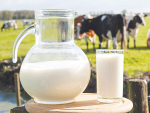"We're excited to welcome Arla to GDT Pulse," says Justin Matijasevich, interim CEO of GDT. "Their participation will expand opportunities for buyers and add further momentum to the GDT Pulse pilot."
Arla's SMP will be available through Pulse actions held during non-GDT Event weeks, offering buyers more frequent price signals and purchasing opportunities. Arla's first GDT Pulse auction is scheduled for 12 May 2025.
"Joining GDT Pulse is a natural evolution of our sales strategy," says Thomas Carstensen, senior vice president of Arla Foods. "It allows us a flexible new way to connect with customers and offer our products more frequently."
Launched in August 2022 by GDT and Fonterra, GDT Pulse is a pilot service offering shorter, more frequent online auctions to complement GDT Events.
Auctions typically last 10-20 minutes and provide additional price discovery for core dairy commodities.











